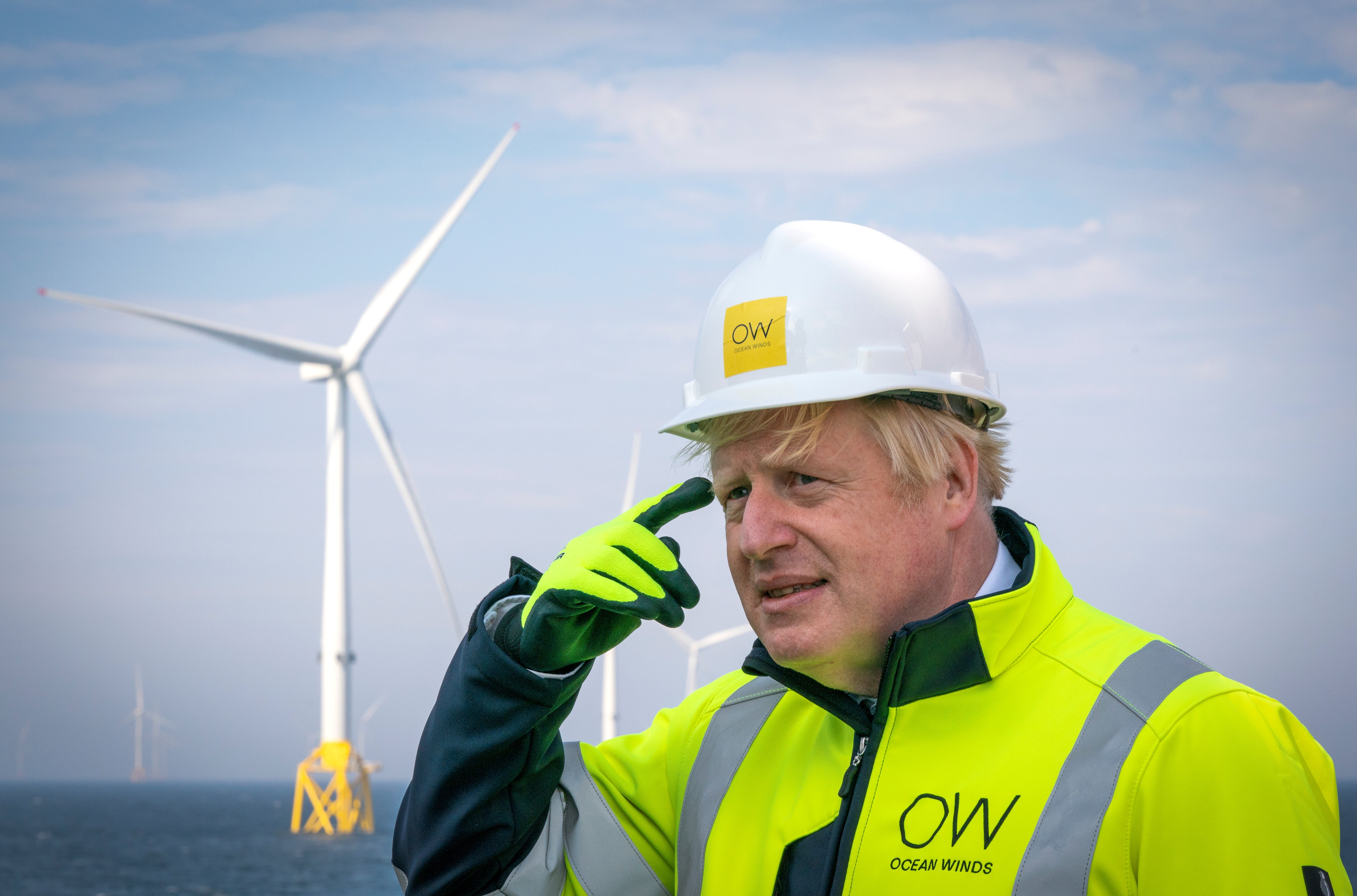The IPCC’s warning must persuade Boris Johnson to aim higher and push for a more ambitious climate goal
A pledge to reaffirm the existing 1.5C target at Cop26 would not measure up to the scale of the challenge, says Andrew Grice. But the transition to ‘net zero’ carbon has huge political implications


The most comprehensive study of the impact of climate change, dubbed a “code red for humanity” by the United Nations, provides a stark warning to the world’s politicians about the huge price of failing to address the crisis.
The UN Intergovernmental Panel on Climate Change (IPPC) says that human-caused climate change is already affecting many weather and climate extremes in every region around the world, warning that it will reach or exceed 1.5C of warming since pre-industrial days over the next 20 years. The climate crisis is unmistakably here and now, and not something we can worry about in 2050.
To describe this landmark report as timely is an understatement. Despite the daily examples on our news bulletins of extreme weather events, the prospects of achieving a commensurate response at the Cop26 summit in Glasgow in November are not looking good. There are ominous signs of a debate inside the UK government on whether to aim high or scale down its goals to a more realistic level to spare Boris Johnson an embarrassing diplomatic failure.
However, a pledge to reaffirm the existing target of limiting global warming to 1.5C would not measure up to the scale of the challenge. The IPCC’s sobering warning must persuade Johnson to aim higher and push his counterparts into a more ambitious goal. As the prime minister said during the debate on easing coronavirus restrictions: “If not now, when?” Similarly, if this report does not galvanise the world’s leaders, what on earth will?
The good news is that governments around the world have bought into the process of drawing up the report – which has 234 authors from 66 countries – so they cannot easily walk away from its verdict. That will strengthen the hand of Alok Sharma, the cabinet minister who will chair the conference, as he travels the world trying to broker an agreement in Glasgow. Such groundwork is vital well in advance of the meeting itself, as the 2015 Cop in Paris showed.
Sharma is struggling to secure commitments from countries to reduce emissions and for richer nations to deliver their already overdue pledge to provide $100bn (£72bn) a year to help poor countries cut emissions and tackle the effects of climate change. “Finance is crucial to this,” one Whitehall source told me.
Johnson is right to argue that today’s report should be “a wake-up call for the world to take action now”. But the UK is also under the spotlight in the run-up to Cop26 over its domestic record, amid growing doubts over whether it is setting a good enough example to the rest of the world. Although its legally binding commitment to reduce greenhouse gas emissions to “net zero” by 2050 was ground-breaking, its climate advisers are warning it has failed to spell out how it will be delivered.
The reason why? Real tensions and divisions inside the cabinet and Conservative Party. Rishi Sunak, the chancellor, has repeatedly delayed the publication of a report on how the cost of the transition to “net zero” will be met by individuals, businesses and taxpayers. Two other reports on hydrogen and heating homes are also due shortly. Ministers are wrangling over how much help the state should give people to replace traditional gas boilers. The transition has huge political implications, not least in the Tories’ newly won red wall seats in the north of England and the Midlands.
There are already growing Tory jitters about a cost of living crisis, with inflation likely to reach 4 per cent according to the Bank of England, and gas and electricity bills to rise sharply in October when the £20-a-week uplift in universal credit and the furlough scheme are due to end. In March, Johnson promised families he will not impose green taxes on carbon or meat. But Whitehall is now preparing the ground for the public to pay towards meeting “net zero”, even if low-income families get some help. Officials now say the goal is to hit the 2050 target without “extraordinary costs for working-class families.”
The cost of the transition is the new cause for the Tory backbenchers looking for a new one after Brexit and Covid lockdowns. Inevitably, they have set up a new group to challenge the government over the switch to electric vehicles and decarbonised homes. Craig Mackinlay, its chair, promises it will provide “a scientific bedrock of some common sense”, saying the government’s plans are ill-thought-out and uncosted.
Sooner or later, Johnson is going to have to tell his backbenchers – and the public – some inconvenient truths. With time running out for a successful Cop26, the sooner the better. "Net zero" is too vital an issue for him to keep his fractious MPs off his back by splitting the difference, as he has sometimes done during the pandemic.
During the 2008 financial crisis, Gordon Brown misspoke when he said he had “saved the world.” If Johnson has the courage to aim high, he has an opportunity to do it.
Join our commenting forum
Join thought-provoking conversations, follow other Independent readers and see their replies
Comments
Bookmark popover
Removed from bookmarks